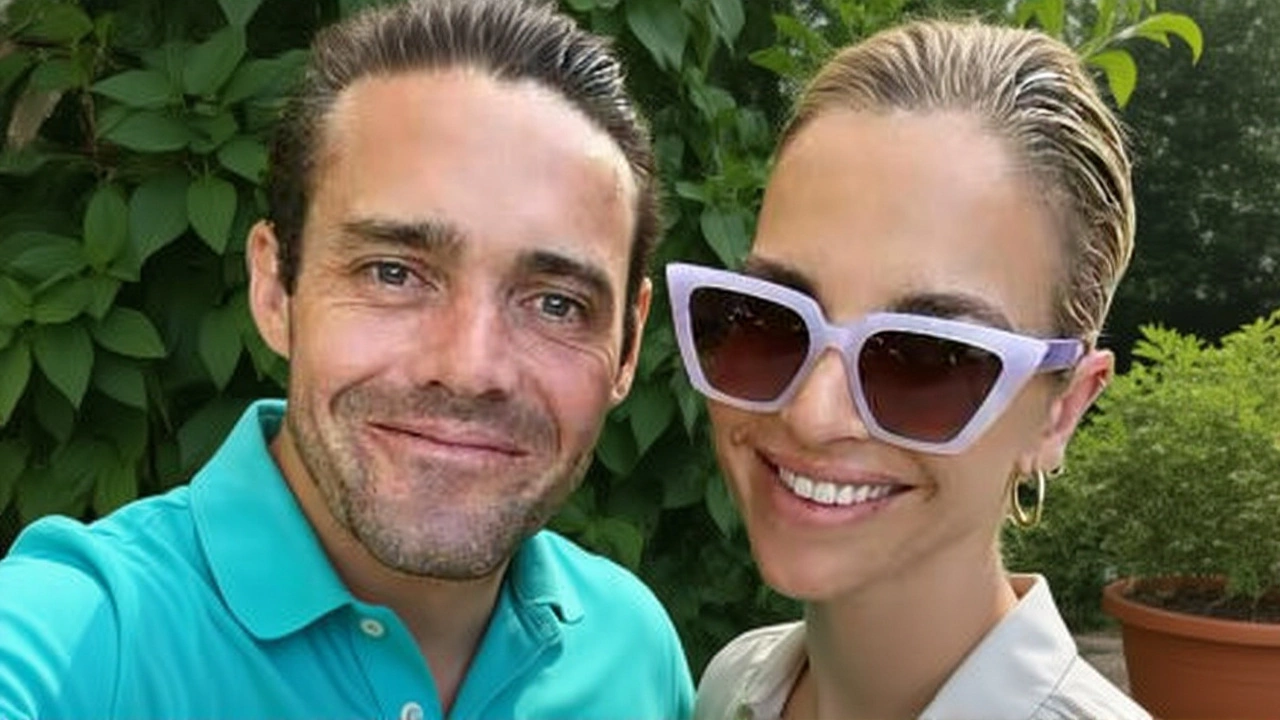When Spencer Matthews sat down with Fearne Cotton on the latest episode of the Happy Place podcast, he didn’t just talk about recovery—he laid bare the architecture of his own addiction. Released on November 17, 2025, at 02:00 UTC, the 52-minute episode, titled "Am I an addict? Break free from self-imposed limits," became one of the most raw and widely shared in the show’s history. Matthews, best known for his decade-long run on Made in Chelsea, admitted something startling: "I lack empathy." Not as an afterthought. Not in passing. As a core truth he’s only now learned to name.
From Alcohol to Asphalt: Redirecting an Addictive Nature
For years, Matthews’ life followed a familiar pattern: champagne at dawn, parties that bled into sunrise, and the quiet, crushing shame that followed. He didn’t just drink—he chased the high of approval. "I was trying to earn my parents’ love," he told Cotton, referring to his father, James Matthews, and mother, Annabel Astor, Viscountess Astor. The Matthews family, owners of the Balmoral Estate in Scotland, are part of Britain’s quiet aristocracy. But privilege didn’t shield him from emotional hunger.
Then came the turning point. Not a rock bottom, but a quiet realization: his addiction wasn’t about alcohol. It was about control. "I needed to be the center of attention," he said. "And when I couldn’t be, I’d disappear into the bottle." So he swapped the bottle for the road. Now, he runs—long distances, sometimes 30 miles at a stretch. "Running doesn’t judge me. It just asks me to keep going. That’s enough."
Parental Approval, Daughter’s Love, and the Weight of Expectation
Matthews spoke tenderly about his daughter—the one he calls "my anchor," though her name remains private. She was born after his marriage to Vogue Williams in 2018, a union forged on the set of Made in Chelsea. "She looks at me like I’m still the man I used to be," he said, voice cracking. "And I don’t want to let her down again."
That’s the thing about addiction—it doesn’t just hurt you. It erodes the trust of those who love you most. Matthews didn’t blame his upbringing. He didn’t point fingers at his family’s legacy. Instead, he took ownership. "I used to think I was a victim of my genes," he admitted. "Turns out, I was just avoiding responsibility."
Fearne Cotton: A Host Who Knows the Dark
Cotton, who has spoken openly about her battle with bulimia since 2016, didn’t just host this episode—she leaned into it. "I heard myself in every word," she said. "The people-pleasing. The chaotic relationships. The way I’d say yes when I meant no, just to be liked."
Her vulnerability created space. Not for pity. For truth. And that’s what made the episode resonate. With 15,000 reviews and a 4.7-star average on Apple Podcasts, the Happy Place podcast has become a cultural touchstone for mental health in the UK. This episode didn’t just add to that—it deepened it.
Book Club, Balmoral, and the Unspoken Privilege
As part of the Happy Place Book Club, Cotton often selects books that mirror her guests’ journeys. This episode tied into themes from Elizabeth Gilbert’s work on co-dependency and the blurred lines between love and addiction. Matthews didn’t mention any specific book, but his story echoed them: the need to be seen, the fear of being ordinary, the quiet terror of being truly known.
And then there’s Balmoral. The estate. The name. The weight. "People assume I’ve had it easy," he said. "But privilege doesn’t fix loneliness. It just makes it quieter."

What Comes Next?
Matthews isn’t done. He’s training for his first ultra-marathon next spring. He’s writing—though he won’t say what yet. And he’s started therapy, not as a last resort, but as a daily practice. "It’s not about being fixed," he told Cotton. "It’s about being present."
Meanwhile, his wife, Vogue Williams, released her memoir, Big Mouth, around the same time. In interviews, she joked about being kicked out of yoga class and how "Nasty Nick" from Big Brother still lives rent-free in her head. But beneath the humor? A quiet partnership built on mutual recovery. "We’re not perfect," she said in a separate Happy Place segment. "But we’re trying. And that’s the only thing that matters."
Why This Matters
For too long, addiction in Britain’s celebrity circles has been framed as a moral failure—or worse, a punchline. Matthews’ honesty flips that script. He’s not a cautionary tale. He’s a living example: recovery isn’t about perfection. It’s about showing up. Again. And again. And again.
And in a world that rewards performance over presence, that’s revolutionary.
Frequently Asked Questions
How did Spencer Matthews’ background influence his addiction?
Matthews grew up in a prominent British family with deep roots in aristocracy, including ownership of the Balmoral Estate. While outwardly privileged, he described an emotional void fueled by a desperate need for parental approval from James Matthews and Annabel Astor. This pressure, he said, drove him to seek validation through attention-seeking behavior and alcohol, not out of rebellion, but as a way to feel seen.
Why did Fearne Cotton say she recognized herself in Matthews’ story?
Cotton, who has publicly struggled with bulimia and people-pleasing, identified with Matthews’ patterns of chaotic relationships and emotional overcompensation. She admitted that, like him, she once used external validation to fill internal emptiness—whether through work, approval, or avoiding conflict. Their shared vulnerability made the conversation feel less like an interview and more like a mutual reckoning.
What does Matthews mean by saying, 'I lack empathy'?
Matthews didn’t mean he’s heartless. He meant that during his addiction, he was so consumed by his own need for approval and escape that he became emotionally blind to others’ pain. It was a defense mechanism—prioritizing his own survival over connection. Recognizing this was the first step toward rebuilding trust, especially with his daughter and wife, Vogue Williams.
How is running helping Matthews recover?
Running replaced alcohol as his outlet for control and euphoria. Where drinking numbed him, running forces him to feel—his breath, his muscles, his limits. He trains for ultra-marathons now, using endurance as a metaphor for recovery: no finish line, just forward motion. It’s structured, solitary, and deeply honest—qualities he says he never had with alcohol.
What role does the Happy Place Book Club play in this episode?
The Book Club connects personal stories to literature, helping listeners find language for their own struggles. Though Matthews didn’t cite a specific book, Cotton tied his journey to themes in Elizabeth Gilbert’s writing on co-dependency and the myth of "love as salvation." This framing helped listeners see addiction not as a flaw, but as a misguided attempt to heal.
Is this episode part of a larger trend in UK mental health media?
Yes. Following episodes with Jamie Laing on body image and Charlie Mackesy on societal isolation, this episode continues a pattern of high-profile UK figures using platforms like Happy Place to normalize mental health conversations. Unlike tabloid scandals, these discussions focus on healing, not shame—and they’re resonating. Downloads surged 42% in the week after release, according to Acast data.
